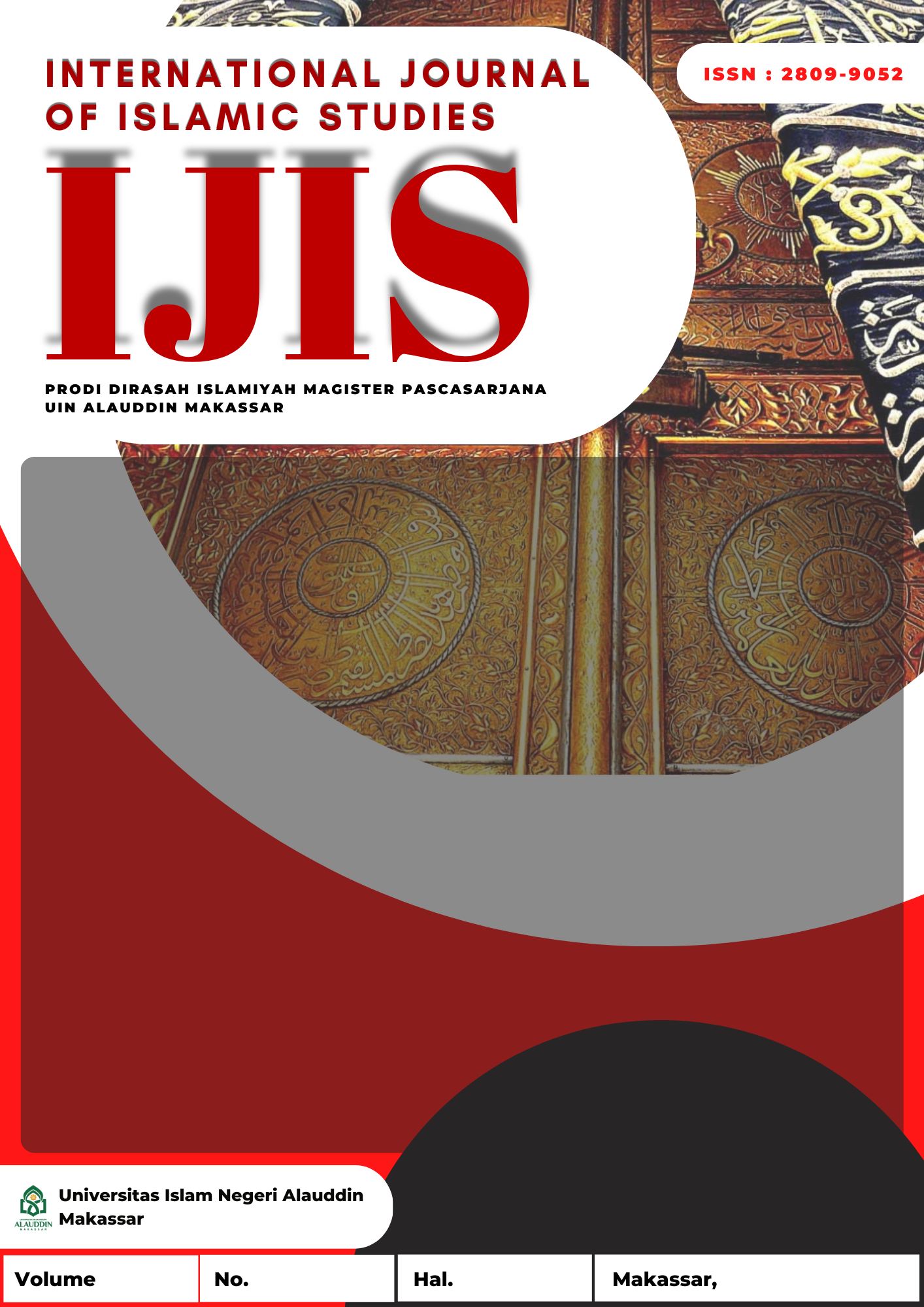THE EFFECT OF ACADEMIC PROCRASTINATION ON LEARNING ACHEIVEMENT OF ISLAMIC RELIGIOUS EDUCATION STUDENTS AT SMAN 5 MAKASSAR
Abstrak
This study aims to (1) determine the level of academic procrastination in students at SMA Negeri 5 Makassar (2) to determine the learning outcomes of students at SMA Negeri 5 Makassar (3) to determine the effect of academic procrastination on student learning outcomes at SMA Negeri 5 Makassar. This type of research uses the expost facto method where academic procrastination is the independent variable and learning outcomes are the dependent variable. The total population in this study was 936 students and the sample taken was 91 students. The research instrument used in this research is a questionnaire (questionnaire) and documentation. The processing and analysis techniques used are descriptive statistical analysis and inferential statistical analysis. Based on the results of processing academic procrastination variables, it can be concluded that academic procrastination has a significant effect on student learning outcomes in Islamic Religious Education and Budi Pekerti lessons. For students at SMA Negeri 5 Makassar in order to improve learning outcomes by reducing the habit of academic procrastination (the habit of procrastinating), and increasing achievement motivation so that they dare to face tasks with full responsibility.
Referensi
Demitri Bahriani, M. Makbul. "Pengaruh Pemberian Penguatan (Reinforcement) terhadap Prestasi Belajar Peserta Didik dalam Bidang Studi Pendidikan Agama Islam di SMP Negeri Makassar." Journal Mistar 1.1 (2020).
Novitasari, Yuni, and Muhammad Nur. "Bimbingan dan konseling belajar (akademik) dalam perspektif Islam." Indonesian Journal of Educational Counseling 1.1 (2017): 53-78.
Makbul, M., Achmad Abu Bakar, and Aan Parhani. "Al-Qur'an Insights About Musyawarah (A Study of Maudhu'iy Commentary on Deliberation)." Jurnal Diskursus Islam 9.2: 102-113
Saihu, Saihu. "Konsep Manusia dan Implementasinya dalam Perumusan Tujuan Pendidikan Islam Menurut Murtadha Muthahhari." Andragogi: Jurnal Pendidikan Islam dan Manajemen Pendidikan Islam 1.2 (2019): 197-217.
Makbul, M., et al. "The Effect of Emotional Intelligence and Spiritual Intelligence on Learning Outcomes of Islamic Religion and Characteristics of Students at SMA Negeri 5 Makassar." International Journal of Social Science And Human Research 4.4 (2021): 588-595.
Arfani, Laili. "Mengurai Hakikat Pendidikan, Belajar dan Pembelajaran." Pelita Bangsa Pelestari Pancasila 11.2 (2018).
Ramadhani, Aprilina. "Hubungan Konformitas dengan Prokrastinasi dalam Menyelesaikan Skripsi Pada Mahasiswa Tingkat Akhir yang Tidak Bekerja." Psikoborneo: Jurnal Ilmiah Psikologi 4.3 (2016).
Sagita, Nur Nirmala, and Amir Mahmud. "Peran Self Regulated Learning dalam Hubungan Motivasi Belajar, Prokrastinasi dan Kecurangan Akademik." Economic Education Analysis Journal 8.2 (2019): 516-532.
Supriandi, Supriandi. "Analisis Kesulitan Belajar Peserta Didik Membaca Al-Qur’an Pada Mata Pelajaran PAI Kelas X Sman 1 Pinrang." Al Qodiri: Jurnal Pendidikan, Sosial dan Keagamaan 19.1 (2021): 56-69.
Fajriati, Ivah S., Safei Safei, and Saprin Saprin. "Pengaruh Penerapan Metode Pembelajaran Brain Based Learning Berbantuan Brain Gym Terhadap Hasil Belajar Peserta Didik." Jurnal Biotek 5.1 (2017): 1-10.
Fitriani, Fitriani, Abd Samad, and Khaeruddin Khaeruddin. "Penerapan Teknik Pemberian Reinforcement (Penguatan) Untuk Meningkatkan Hasil Belajar Fisika Pada Peserta Didik Kelas VIII. A SMP PGRI Bajeng Kabupaten Gowa." Jurnal Pendidikan Fisika 2.3 (2014): 192-202.
Authors who publish with this journal agree to the following terms:
1) Authors retain copyright and grant the journal right of first publication with the work simultaneously licensed under a Creative Commons Attribution License that allows others to share the work with an acknowledgement of the work's authorship and initial publication in this journal.
2) Authors are able to enter into separate, additional contractual arrangements for the non-exclusive distribution of the journal's published version of the work (e.g., post it to an institutional repository or publish it in a book), with an acknowledgement of its initial publication in this journal.
3)Authors are permitted and encouraged to post their work online (e.g., in institutional repositories or on their website) prior to and during the submission process, as it can lead to productive exchanges, as well as earlier and greater citation of published work (See The Effect of Open Access).







